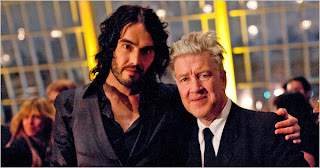I came across the sad story the other day of Tom Cavanagh, a young, Harvard graduate and professional hockey player who killed himself.
For those closest to Cavanagh, his illness became apparent in November 2009 when he suffered his first psychotic episode. He was briefly institutionalized and, in what would become a pattern, responded well to medication and was released. He even joined the AHL’s team in Manchester, N.H., later that season, playing in 17 games before suffering a shoulder injury.
He was hospitalized again in April after becoming violent and breaking furniture in a doctor’s office. But he was well enough to begin this season with an AHL team in Springfield, Mass.
“It’s amazing how he was able to perform at such a high level, knowing what we do now,” said Riley, Cavanagh’s coach at Springfield. “But God only knows what he was dealing with outside the rink.”
One can marvel at the fortitude of this young man to keep himself together enough to get out and play professional hockey despite the diagnosis of schizophrenia, or one can wonder what was everybody thinking? I’m in the latter camp. Schizophrenia is a major crisis point, and it’s not business as usual. The business as usual approach to schizophrenia seems positive and encouraging, but it is not. I call it false positivism.
When we first consulted a psychologist about Chris’s strange behavior, Chris was two weeks away from going back to university a continent away from where we lived. Everybody’s expectations, including ours and Chris’s, were focused on that goal. The psychologist seemed to think that it was just a matter of getting the right meds and then Chris would be back on track at university. He suggested that we arrange an appointment with a psychiatrist connected with Chris’s university before classes resumed for the fall term. When Chris was admitted to hospital a few months later (still not on meds at that time), the doctors and social worker talked of the possibility of Chris resuming his classes, being on meds, and having a social worker drop in to check on him once a week. That dream was short lived as Chris actually got worse while in the hospital. He dropped out of university when he was released three months later.
A rosier outcome than was Chris’s at that time can happen, but how often does it? How realistic is it for someone to pick up their hockey, their studies or their job so quickly after receiving an earthshaking diagnosis? We know that people get short changed in mental health care because of the expense of time in Western cultures. We are told that pills will make us productive. Schizophrenia, diagnosised or otherwise, means that something isn’t working and it’s time for a time-out, a long time out. Perhaps this young man, Tom Cavanagh, was living out the dreams of his father and the rest of his family, and it got to the point where he couldn’t go on as he had been doing because he didn’t know who he was. “He would tell me that he can’t feel any emotion, that he can’t engage with people, that he felt disassociated and that this was the way he felt his whole life,” Joe Cavanagh said.
Author Joseph Campbell sees a schizophrenia breakdown as an inward and backward journey to recover something missed or lost, and to restore a vital balance. Don’t cut the individual off, work with him, Campbell advised.
People like Tom Cavanagh are given drugs and told the falsehood that the drugs are the best and the quickest way to manage the life you had before you got side-swiped. Your parents will be relieved and optimistic and you will become part of the larger community myth of recovery. There is no mention of spiritual and existential problems that need to be addressed. This scenario works until it doesn’t. Tom Cavanagh couldn’t sustain the myth. What he needed was a lot of therapeutic help and understanding up front. He would need intensive support for a long, long time, but he could recover. This is not part of the medication based myth of recovery.
Exposing the business as usual myth of recovery should put the spotlight back on real recovery as a long, slow process needing periods of rest and reflection and minimal to no use of medication. The basis of being told this should come from a place of optimism, that there is a brighter tomorrow and it will come, with effort, just not now. Sometimes doctors will explain recovery this way, but often what you are told comes from a base of pessismism. Doubt is interjected because the medical community, by and large, doesn’t believe in the drugless optimistic approach. When the myth of the speedy recovery by drugs is exposed, the mental health community lies to the public again by telling us that there was never any chance anyway. They now tell us that schizophrenia is a life sentence. In Tom Cavanagh’s case, the doctor painted a picture to the parents that death may be the only release for a diagnosis of schizophrenia. The obvious question that I would raise would be then why did you lie to me about speedy recovery?
Cavanagh’s doctor sat with the family later to explain why Tom might have done this. He told them how the schizophrenia can manifest itself in males in their mid to late 20s. It can be, he said, a raging fire that grows out of control.“He painted a rather dismal picture of what the future is for someone with this disease,” Joe Cavanagh said. “That’s why we’re happy that he didn’t hurt someone and he’s not in jail.”
The myth of the medical cure and speedy recovery is once again being use to prop up the community myth of the unhealable schizophrenic.

